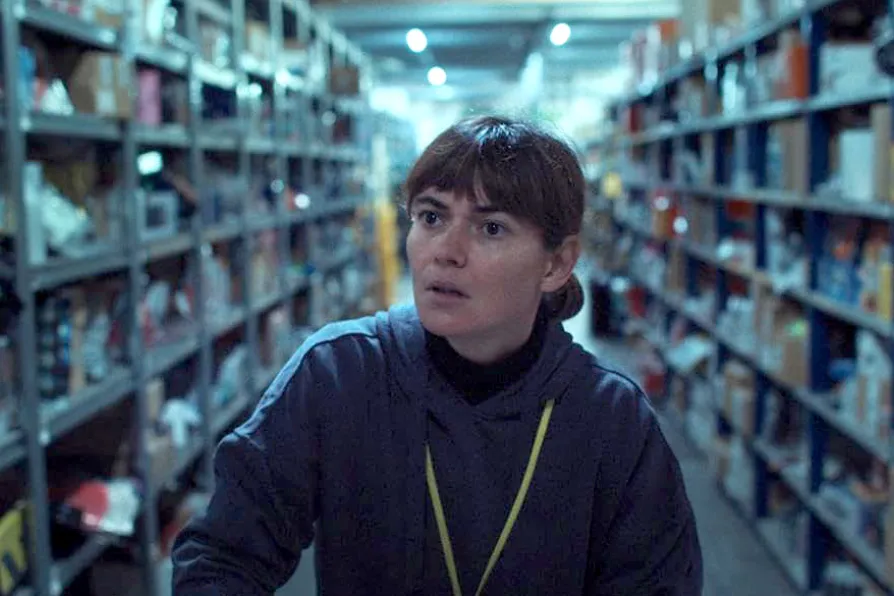The Bard stands with the Reformers of Peterloo, and their shared genius in teaching history with music and song

 STUDY OF THE ALIENATED WORKER: Joana Santos as Aurora in On Falling
[IMDb]
STUDY OF THE ALIENATED WORKER: Joana Santos as Aurora in On Falling
[IMDb]
THE highly anticipated debut of Laura Carreira’s On Falling, winner of the Sutherland Award for Best First Feature at the 2024 BFI London Film Festival, has finally been released in UK cinemas. On Falling is a powerful critique of the capitalist system and is highly commendable. It tells a compelling working-class story of immigration, isolation, and poverty.
The main character, Aurora, works at a Scottish fulfilment warehouse, tirelessly walking down aisles and picking items from shelves to be sent to online shoppers. Her shifts begin early in the morning and end late in the evening. Her productivity is constantly monitored, and her wages are low, barely enough to cover rent, food, electricity, and fuel costs. With little joy in her life, a glimmer of hope appears when her new Polish flatmate, a van driver, invites her out for a drink.

RITA DI SANTO gives us a first look at some extraordinary new films that examine outsiders, migrants, belonging and social abuse

The Star's critics ANGUS REID, MICHAL BONCZA and MARIA DUARTE review Hot Milk, An Ordinary Case, Heads Of State, and Jurassic World Rebirth

RITA DI SANTO reports on the films from Iran, Spain, Belgium and Brazil that won the top awards

RITA DI SANTO speaks to the exiled Ukrainian director Sergei Loznitsa about Two Prosecutors, his chilling study of the Stalinist purges










